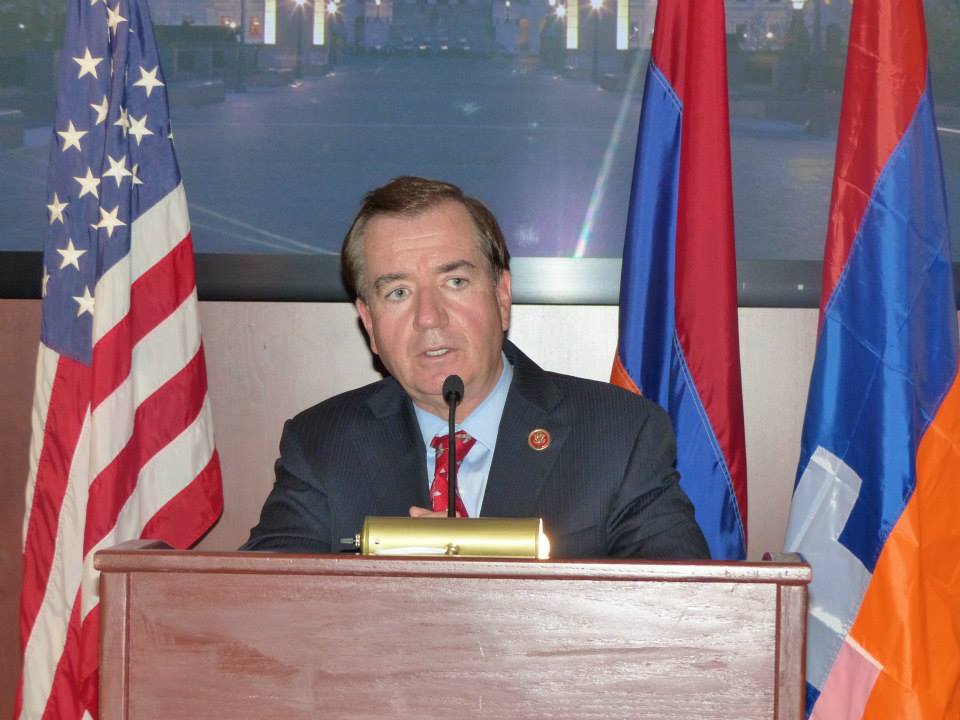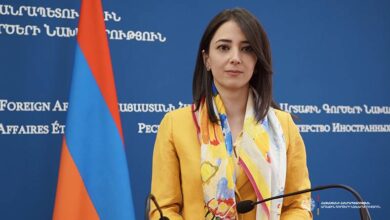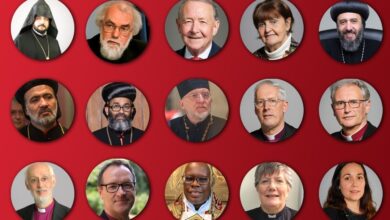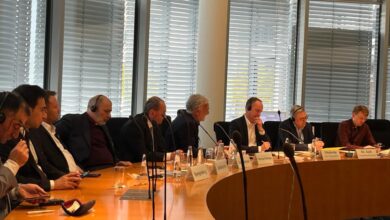Rep. Ed Royce: Time for President Obama to acknowledge the Armenian Genocide

By Rep. Ed Royce
Asarez
World leaders are “called to oppose such crimes with a firm sense of duty, without ceding to ambiguity or compromise.” That is what Pope Francis said last week in discussing the Armenian genocide. On the 100th anniversary of the Armenian genocide, it is time President Obama acknowledged this horrific event for what it is – the first genocide of the 20th century. The only way to honor the victims and their families is by solemnly – and directly – recognizing the true nature of the horrors that they suffered. Earlier this month, I sent a letter to President Obama urging him to do so.
The orchestrated slaughter of 1.5 million men, women, and children began quietly as Ottoman authorities rounded up 250 of the community’s religious and civic leaders. Once these community leaders were assassinated, authorities arrested Armenian families, confiscating their properties. Men were executed or sent to forced labor camps. Women, children, and the frail were marched to the Syrian Desert, deprived of food and water, and subjected to violent assault by gangs – often with the foreknowledge and approval of Ottoman authorities.
The Ottoman leaders gambled that the international community would be too involved in World War I to pay attention to their bloody campaign. Unfortunately, they were largely right. I am proud that the United States was one of the few nations that did pay attention. The U.S. Ambassador to the Ottoman Empire at the time, Henry Morganthau, documented the atrocities and wrote: “When the Turkish authorities gave the orders for these deportations, they were merely giving the death warrant to a whole race; they understood this well, and, in their conversations with me, they made no particular attempt to conceal the fact…” The United States has continued to speak on behalf of the Armenian people throughout the years, as President Ronald Reagan famously did in his 1981 Holocaust Day statement when he called on us all to remember the Armenian genocide. Unfortunately President Obama each April has used every possible word except genocide.
I have had the honor of knowing so many great Armenian-Americans in my life – some of whom were direct survivors of the genocide. In the California Senate, I authored a resolution to recognize the Armenian genocide. With the support of then-Governor George Deukmejian, the resolution passed. It was the first measure of its kind adopted by any state in the country.
Last April, I was honored to travel to Yerevan and lay a wreath at Tsitsernakaberd in honor of the victims as part of the genocide commemoration ceremonies. And this year, I joined with a number of my colleagues in sending a letter to President Obama urging him to refer to these tragic murders as “genocide” in his annual April 24th statement.
But, as we rightly focus on what happened 100 years ago, we must not lose sight of the fact that Armenians face oppression, persecution, and violent conflict today. Armenian Christians in Syria are caught in the crossfire between Assad’s forces and rebel groups, and are also deliberately targeted by ISIS and other extremist groups. Since the beginning of the Syrian civil war, I have called for more efficient delivery of humanitarian aid.
Armenian Orthodox places of worship are also being attacked, as with the tragic bombing last January of the Forty Martyrs Cathedral in Aleppo. Armenian religious sites have been neglected, vandalized, and confiscated elsewhere in the region, most notably in Turkey. That is why last year I authored H.R. 4347, the Turkey Christian Churches Act, to protect religious sites and to return them to their rightful owners.
Also, today it is important to recognize that Armenians in Nagorno-Karabakh still face threats of violence. The hateful rhetoric coming from Baku, so reminiscent of the attitudes in Istanbul leading up to April 24, 1915, feeds the conflict. When President Aliyev refers to Armenia as the “enemy” and “occupiers” and says that “we will restore our territorial integrity either by peaceful or military means. We are ready for both options…,” it directly influences Azeri soldiers at the border. Violence there has risen to the highest levels in twenty years. When I recently met our envoy to the Minsk Group talks, Ambassador Warlick, I made clear that the U.S. should be condemning such rhetoric, while also pressing Baku to work in good faith for a lasting peace, including the immediate withdrawal of their snipers and the announcement of a date for a referendum on Nagorno-Karabakh’s status.
We cannot get the future right if we ignore the lessons of the past. There are some in our Administration and in Congress who seek to avoid tensions with Turkey by allowing April 24th to pass unacknowledged. We should instead strive for this anniversary to be an opportunity to improve our bilateral relations, heal relations between Turkey and Armenia, and focus on protecting threatened Armenians around the world. That starts with a White House recognition of the genocide.
U.S. Representative Ed Royce, of California, is Chairman of the House Foreign Affairs Committee.










